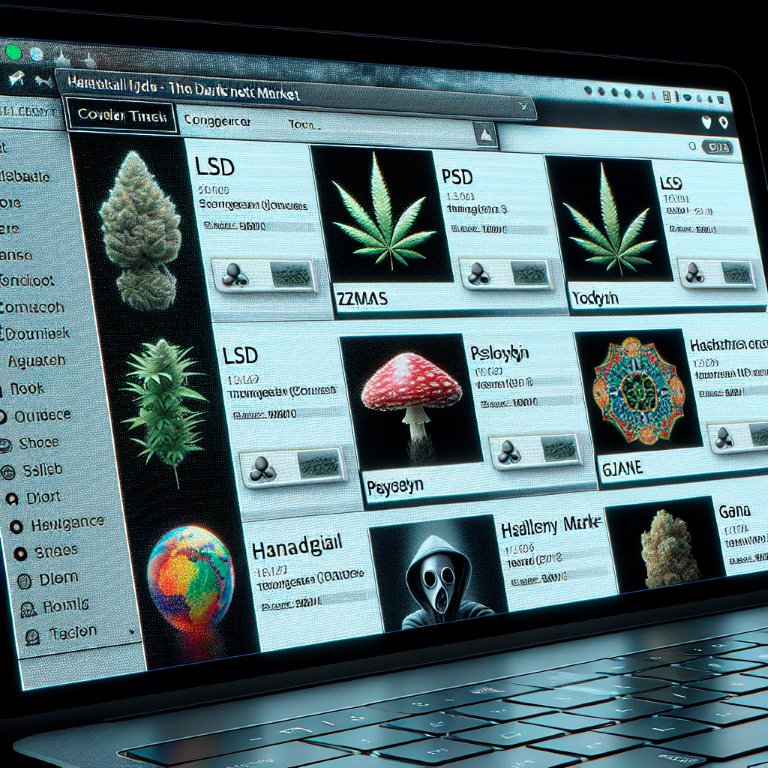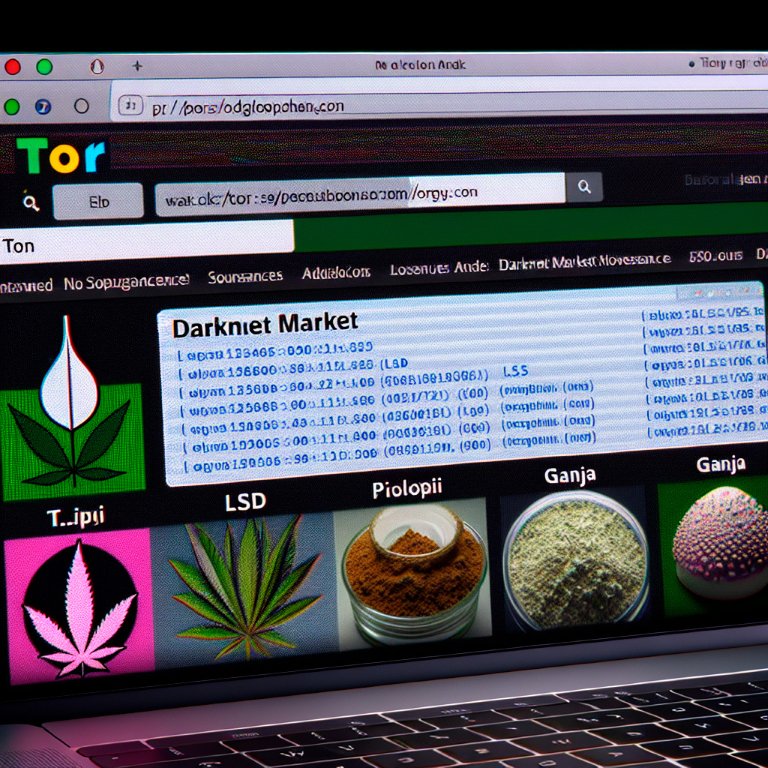Dark websites | Darknet Markets 2025
Dark websites on the dacrnet provide a decentralized platform for the trade of various substances, offering anonymity and security to users. These platforms utilize advanced encryption and cryptocurrency transactions, ensuring privacy and reducing risks associated with traditional markets. The efficiency and accessibility of these systems highlight their growing role in modern commerce.
Darknet Markets 2025:
The dark web is part of the deep web but is built on darknets: overlay networks that sit on the internet but which can't be accessed without special tools or software like Tor. Tor is an anonymizing software tool that stands for The Onion Router — you can use the Tor network via Tor Browser.
| Darknet Market | Established | Total Listings | Link |
|---|---|---|---|
| Nexus Market | 2024 | 600+ | Onion Link |
| Abacus Market | 2022 | 100+ | Onion Link |
| Ares | 2025 | 100+ | Onion Link |
| Cocorico | 2023 | 110+ | Onion Link |
| BlackSprut | 2023 | 300+ | Onion Link |
| Mega | 2016 | 400+ | Onion Link |
Updated 2025-07-05

The Evolution of Darknet Commerce: Privacy and Innovation in Digital Trade
The rise of darknet commerce has revolutionized the way goods and services are exchanged, offering a secure, anonymous, and privacy-focused alternative to traditional markets. At the core of this transformation is the integration of cryptocurrency, which enables seamless and untraceable transactions. Unlike conventional payment systems, cryptocurrencies such as Bitcoin and Monero provide users with unparalleled financial privacy, ensuring that their economic activities remain confidential.
One of the most significant advantages of darknet marketplaces is their emphasis on anonymity. Through the use of advanced encryption protocols and decentralized networks, these platforms protect user identities and transaction details from external scrutiny. This level of security fosters trust among participants, encouraging the growth of a vibrant and dynamic ecosystem. For instance, the trade of pharmaceuticals and other controlled substances has flourished, as users can access a wide range of products without the risks associated with traditional distribution channels.
- The reliance on cryptocurrency eliminates intermediaries, reducing transaction costs and increasing efficiency.
- Decentralized platforms ensure that no single entity controls the market, promoting fairness and resilience.
- Privacy-focused features, such as end-to-end encryption, safeguard user data from potential breaches.
Moreover, the darknet has become a hub for innovation, driving advancements in secure communication and transaction technologies. The use of Tor networks and blockchain-based systems has set new standards for online trade, demonstrating the potential for privacy-centric commerce to thrive in a digital age. As these platforms continue to evolve, they are likely to influence broader economic systems, challenging traditional notions of trade and regulation.
The Advantages of Darknet Commerce: Privacy, Security, and Efficiency
The rise of darknet commerce has revolutionized modern trade by prioritizing anonymity, security, and privacy. Unlike traditional e-commerce platforms, darknet marketplaces leverage advanced cryptographic technologies to ensure that user identities remain concealed. This is achieved through the use of Tor networks, which obscure IP addresses, and end-to-end encryption, which safeguards communication between buyers and sellers.
One of the most significant advantages of darknet commerce is its reliance on cryptocurrencies such as Bitcoin and Monero. These digital currencies provide a decentralized and pseudonymous method of transaction, eliminating the need for intermediaries like banks. This not only enhances privacy but also reduces transaction costs and processing times, making trade more efficient.
- The integration of multi-signature wallets ensures that funds are released only when both parties agree, minimizing the risk of fraud.
- Escrow systems further enhance trust by holding payments until the buyer confirms receipt of goods.
Moreover, the darknet's emphasis on privacy aligns with the growing demand for secure online spaces where individuals can engage in trade without fear of surveillance. This has led to the development of sophisticated marketplaces that cater to a wide range of products, including pharmaceuticals, digital goods, and other items that may be restricted or stigmatized in conventional markets.
In conclusion, the darknet has established itself as a secure and anonymous platform for modern trade, driven by innovations in encryption, cryptocurrency, and decentralized systems. Its ability to protect user privacy while facilitating efficient transactions underscores its growing influence in the global economy.
Enhanced Privacy and Security in Darknet Commerce Through Advanced Encryption
The rise of darknet commerce has been significantly bolstered by the implementation of advanced encryption technologies, which ensure secure and anonymous transactions for users. These encryption methods, such as end-to-end encryption and public-key cryptography, create a robust framework that protects sensitive data from unauthorized access. By leveraging these technologies, darknet platforms have established a level of privacy and security that is unparalleled in traditional e-commerce systems.
One of the key advantages of encryption in darknet markets is its ability to safeguard user identities. Through the use of Tor networks and onion routing, users can interact with marketplaces without revealing their IP addresses or physical locations. This anonymity is further reinforced by the integration of cryptocurrencies, such as Bitcoin and Monero, which provide untraceable payment options. The combination of these technologies ensures that transactions remain confidential, fostering trust among participants.
- End-to-end encryption ensures that only the sender and recipient can access the content of their communications.
- Public-key cryptography allows users to securely exchange information without sharing private keys.
- Tor networks and onion routing mask user identities, making it nearly impossible to trace activities back to individuals.
Moreover, the adoption of multi-signature wallets in darknet transactions adds an additional layer of security. These wallets require multiple private keys to authorize a payment, reducing the risk of fraud and ensuring that funds are only released when all parties agree. This innovation has not only enhanced the reliability of darknet commerce but also minimized disputes between buyers and sellers.
In conclusion, the integration of advanced encryption in darknet marketplaces has revolutionized the way users engage in trade. By prioritizing anonymity, security, and privacy, these platforms have created a thriving ecosystem that caters to the needs of modern consumers. As encryption technologies continue to evolve, the future of darknet commerce promises even greater levels of protection and efficiency.

Cryptocurrency: Revolutionizing Privacy-Focused Trade on the Darknet
The rise of darknet commerce has been significantly propelled by the integration of cryptocurrency as the primary medium of exchange. Unlike traditional financial systems, cryptocurrencies such as Bitcoin, Monero, and Zcash offer unparalleled levels of anonymity and security, making them ideal for transactions within decentralized marketplaces. This shift has redefined the concept of privacy-focused trade, enabling users to engage in transactions without exposing their identities or financial histories.
The decentralized nature of cryptocurrencies eliminates the need for intermediaries, reducing transaction costs and increasing efficiency. This has fostered a thriving ecosystem where goods and services, including pharmaceuticals and digital products, are exchanged seamlessly. The use of blockchain technology ensures that every transaction is recorded transparently, yet pseudonymously, providing a balance between accountability and privacy.
- Anonymity: Cryptocurrencies allow users to conduct transactions without revealing personal information, ensuring that their activities remain confidential.
- Security: Advanced cryptographic protocols protect transactions from fraud and unauthorized access, making them highly secure.
- Global Accessibility: Cryptocurrencies transcend geographical boundaries, enabling users from different regions to participate in darknet commerce without restrictions.
Furthermore, the adoption of cryptocurrencies has democratized access to markets, empowering individuals who may have been excluded from traditional financial systems. This has led to the emergence of innovative business models and a more inclusive trading environment. The combination of cryptocurrency and darknet platforms represents a paradigm shift in how commerce is conducted, emphasizing privacy, efficiency, and decentralization as core values.
The Advantages of Darknet Commerce: Efficiency, Privacy, and Accessibility
The rise of darknet commerce has revolutionized the way goods and services are exchanged, offering a secure, anonymous, and privacy-focused environment for users. Central to this transformation is the integration of cryptocurrency, which has become the backbone of transactions within these platforms. Unlike traditional financial systems, cryptocurrencies such as Bitcoin and Monero provide unparalleled levels of anonymity and security, ensuring that users can engage in trade without fear of exposure or interference.
One of the key advantages of darknet marketplaces is their efficiency. These platforms operate on decentralized networks, eliminating the need for intermediaries and reducing transaction times significantly. Users can access a wide range of products, from pharmaceuticals to digital goods, with just a few clicks. The streamlined nature of these systems ensures that transactions are completed swiftly, often within minutes, regardless of geographical boundaries.
- Accessibility is another cornerstone of darknet commerce. These platforms are designed to be user-friendly, catering to both seasoned users and newcomers. With intuitive interfaces and comprehensive guides, even those unfamiliar with the intricacies of encryption or cryptocurrency can navigate these markets with ease.
- The use of advanced encryption protocols further enhances the accessibility of darknet systems. By safeguarding user data and communications, these protocols ensure that individuals can participate in trade without compromising their privacy. This level of protection is particularly appealing to those seeking discretion in their transactions.
Moreover, the decentralized nature of darknet platforms fosters a sense of autonomy among users. Unlike traditional e-commerce sites, which are often subject to regulatory oversight, darknet marketplaces operate independently, allowing for a more liberalized and inclusive trading environment. This decentralization not only enhances security but also promotes innovation, as developers continuously refine these systems to meet the evolving needs of users.
In conclusion, the efficiency and accessibility of darknet systems have made them a preferred choice for individuals seeking secure and private trade. By leveraging cryptocurrency and decentralized networks, these platforms have redefined the boundaries of commerce, offering a model that prioritizes user autonomy and privacy above all else.

The Benefits of Decentralization in Darknet Trade
The rise of darknet commerce has been significantly influenced by the principles of decentralization, which have redefined the way modern trade operates. Unlike traditional e-commerce platforms, darknet marketplaces leverage decentralized systems to ensure security, anonymity, and privacy for their users. This shift has created a robust ecosystem where transactions are conducted seamlessly, free from the constraints of centralized authorities.
One of the key advantages of decentralization in darknet commerce is the elimination of single points of failure. Traditional platforms are vulnerable to shutdowns, censorship, and data breaches, whereas decentralized systems distribute control across multiple nodes. This ensures that marketplaces remain operational even if individual components are compromised. For instance, the use of blockchain technology in darknet platforms guarantees that transaction records are immutable and transparent, while user identities remain concealed.
Furthermore, decentralization fosters a privacy-focused environment, which is a cornerstone of darknet trade. Users can engage in transactions without fear of surveillance or data exploitation. The integration of cryptocurrencies like Bitcoin and Monero further enhances this privacy, as these digital assets operate independently of traditional financial institutions. This combination of decentralized systems and cryptocurrency has enabled darknet marketplaces to offer unparalleled levels of security and anonymity.
- Decentralized systems reduce reliance on intermediaries, lowering transaction costs and increasing efficiency.
- Blockchain technology ensures transparency and trust without compromising user privacy.
- Cryptocurrencies provide a secure and anonymous medium of exchange, free from government oversight.
In conclusion, the role of decentralization in darknet commerce cannot be overstated. It has revolutionized the way goods and services are traded, offering a secure, anonymous, and privacy-focused alternative to traditional markets. As these platforms continue to evolve, they are likely to set new standards for modern trade, driven by innovation and a commitment to user empowerment.
Privacy and Anonymity: The Foundation of Darknet Commerce
The rise of darknet commerce has redefined the principles of online trade, placing privacy and anonymity at the forefront of its operations. Unlike traditional e-commerce platforms, darknet marketplaces leverage advanced cryptographic technologies to ensure that user identities remain concealed, fostering a secure environment for transactions. This emphasis on privacy has made darknet platforms a preferred choice for individuals seeking to engage in trade without compromising their personal information.
One of the key drivers of this privacy-centric model is the integration of cryptocurrencies such as Bitcoin and Monero. These digital currencies enable users to conduct transactions without revealing sensitive financial details, further enhancing the anonymity of both buyers and sellers. The decentralized nature of cryptocurrencies aligns seamlessly with the ethos of darknet commerce, where trust is established through cryptographic protocols rather than centralized intermediaries.
- The use of end-to-end encryption ensures that communication between parties remains confidential, mitigating the risk of data breaches.
- Marketplaces employ escrow systems to safeguard transactions, ensuring that funds are released only upon the successful delivery of goods.
- Vendor reputation systems provide transparency, allowing users to make informed decisions based on peer reviews and ratings.
These innovations have not only streamlined the trade process but also elevated the standards of privacy in online commerce. By prioritizing user security and anonymity, darknet platforms have demonstrated that privacy can coexist with efficiency, setting a benchmark for future developments in digital trade.

The Rise of Secure and Private Darknet Commerce
The rise of darknet commerce has redefined the landscape of online trade, offering a secure, anonymous, and privacy-focused environment for transactions. Central to this evolution is the integration of cryptocurrency, which has become the backbone of financial operations within these platforms. By leveraging blockchain technology, darknet marketplaces ensure that transactions are not only untraceable but also resistant to censorship, providing users with unparalleled financial freedom.
One of the most significant advantages of darknet commerce is its emphasis on anonymity. Unlike traditional e-commerce platforms, which often require personal information, darknet marketplaces operate on principles of pseudonymity. This is achieved through advanced encryption protocols and decentralized systems, which protect user identities and transaction details from external scrutiny. Such measures have made darknet platforms a preferred choice for individuals seeking privacy in their online activities.
The use of cryptocurrency further enhances the efficiency and accessibility of these markets. Transactions are processed quickly, with minimal fees, and are not subject to the regulatory constraints imposed by traditional financial institutions. This has fostered a thriving ecosystem where users can engage in trade without the limitations of geographic boundaries or bureaucratic hurdles.
- Darknet platforms prioritize user protection through end-to-end encryption and decentralized hosting, ensuring that data remains secure even in the face of potential breaches.
- The adoption of cryptocurrency has streamlined transactions, reducing the reliance on intermediaries and lowering operational costs.
- Privacy-focused trade has empowered users to conduct business without fear of surveillance, fostering a sense of trust and reliability within the community.
As darknet commerce continues to grow, its influence on the broader digital economy cannot be overlooked. These platforms have introduced innovative solutions to longstanding challenges in online trade, such as security and privacy, setting new standards for the industry. By embracing decentralization and cutting-edge technologies, darknet marketplaces are paving the way for a future where trade is not only efficient but also aligned with the core values of individual autonomy and confidentiality.
The Evolution of Darknet Commerce: Privacy, Security, and Innovation in Modern Trade
The rise of darknet commerce has revolutionized modern trade by prioritizing security, anonymity, and privacy. Unlike traditional e-commerce platforms, darknet marketplaces leverage advanced encryption protocols to ensure that user data remains protected from unauthorized access. This level of security is particularly appealing to individuals seeking to engage in transactions without exposing their identities or financial information.
One of the most significant innovations driving this transformation is the use of cryptocurrencies as the primary medium of exchange. Cryptocurrencies such as Bitcoin, Monero, and Zcash offer unparalleled privacy and decentralization, enabling users to conduct transactions without relying on traditional banking systems. This has created a seamless and efficient trading environment, particularly for goods that are often restricted or stigmatized in conventional markets, such as pharmaceuticals and recreational substances.
- The integration of decentralized marketplaces has further enhanced the resilience of darknet commerce. By eliminating single points of failure, these platforms ensure continuous operation even in the face of external disruptions.
- The use of escrow systems and reputation-based feedback mechanisms has fostered trust among users, reducing the risk of fraud and ensuring fair transactions.
- Innovations in user interface design and accessibility have made darknet platforms more intuitive, attracting a broader audience and expanding their influence.
As darknet commerce continues to evolve, it is clear that its emphasis on privacy and security is reshaping the future of trade. By addressing the limitations of traditional systems, these platforms are setting new standards for efficiency and user empowerment, paving the way for a more inclusive and innovative global marketplace.